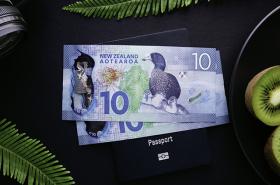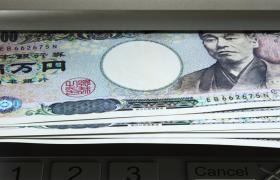As we close out another week, and I get one day closer to starting my chocolate advent calendar, the Kiwi dollar is struggling under the weight of mixed market signals. The most significant influence on the value of the NZD continues to be the trade war between China and the US. As there is still no clear outlook on its progress, markets and the NZD are feeling the pressure. With this in mind, today, one Kiwi dollar will buy you:
0.6287 US dollars
67.3923 Japanese yen
0.5596 euros
0.4792 Great British pound
18.3796 Thai Baht
0.9212 Australian dollars
13,410.1 Vietnamese Dong
I hate to be the bearer of bad news, but the NZD is currently down on most major currencies since this time last week. Stress less about less than ideal exchange rates by adding Rate Move Guarantee to your purchase in any Travel Money NZ store. It’s free, and if the rate improves within 14 days, we will refund you the difference*.
Currently, in the world of macroeconomics, the trade war and domestic data are the main drivers of fluctuations in the Kiwi Dollar’s value.
On the domestic front, there wasn’t a great deal of data released apart from the Credit Card spending result. This didn’t do much to support the NZD, as spending only increased by 2.5%, well below market expectations of 5.5%. This put downward pressure on the value of the NZD as a result.
Domestic news aside, let’s delve into how the trade war is impacting the Kiwi dollar.
US/ China trade negotiations
Conflicting reports cloud market sentiment around the trade war. On the positive side, a Chinese trade negotiator said he was “cautiously optimistic” about reaching a phase one deal. Further to this, the US has said it may be willing to delay the scheduled tariff increase on December 15 even if a deal is not reached.
Meanwhile, the US House of Representatives and the Senate have approved the Hong Kong Human Rights and Democracy bill. Trump needs to sign, and it will become law. This is a tricky situation, as both the Hong Kong and Chinese governments oppose the Bill. So much so, that China has threatened to retaliate if the Bill is signed, and declared that supporting Hong Kong protests was gross interference in their affairs with Hong Kong.
While China hasn’t directly said that signing the Bill will impact trade negotiations, the whole situation has left markets cautious, thus putting downward pressure on the value of the Kiwi Dollar.
It’s worth noting that markets have already priced in a phase one deal. This means they have already accounted for the deal being approved in their currency forecasts. Should an agreement not get passed, the Kiwi dollar will experience downward pressure. As you can imagine, this is not great news for Kiwi travellers hoping to supersize their foreign currency.
With all of this in mind, markets are expecting another rate cut by February 2020.
Until then, keep your eye on the Trade War and general economic sentiment to get the best idea of how the Kiwi Dollar will perform.
This blog is provided for information only and does not take into consideration your objectives, financial situation or needs. You should consider whether the information and suggestions contained in any blog entry are appropriate for you, having regard to your own objectives, financial situation and needs. While we take reasonable care in providing the blog, we give no warranties or representations that it is complete or accurate, or is appropriate for you. We are not liable for any loss caused, whether due to negligence or otherwise, arising from the use of, or reliance on, the information and/or suggestions contained in this blog. All rates are quoted from the Travel Money NZ website and are valid as of November 22 2019. Terms and conditions apply to Rate Move Guarantee.












